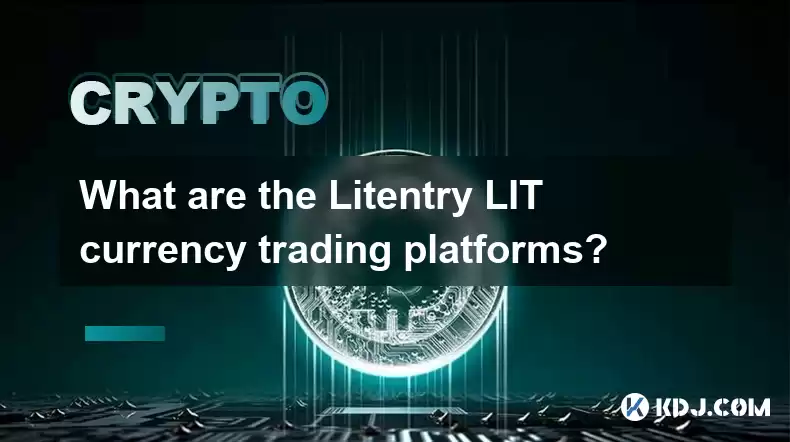-
 Bitcoin
Bitcoin $119000
-2.27% -
 Ethereum
Ethereum $4642
-2.43% -
 XRP
XRP $3.115
-4.19% -
 Tether USDt
Tether USDt $1.001
0.10% -
 BNB
BNB $850.0
-0.95% -
 Solana
Solana $197.3
-4.28% -
 USDC
USDC $0.0000
0.04% -
 Dogecoin
Dogecoin $0.2306
-6.16% -
 TRON
TRON $0.3582
-2.27% -
 Cardano
Cardano $0.9500
-4.89% -
 Hyperliquid
Hyperliquid $48.30
2.90% -
 Chainlink
Chainlink $22.67
-3.93% -
 Sui
Sui $3.852
-4.04% -
 Stellar
Stellar $0.4297
-5.22% -
 Bitcoin Cash
Bitcoin Cash $599.5
-1.55% -
 Ethena USDe
Ethena USDe $1.001
0.05% -
 Hedera
Hedera $0.2554
-5.13% -
 Avalanche
Avalanche $25.19
-0.28% -
 Litecoin
Litecoin $121.8
-6.44% -
 UNUS SED LEO
UNUS SED LEO $9.579
3.40% -
 Toncoin
Toncoin $3.445
-4.22% -
 Shiba Inu
Shiba Inu $0.00001307
-5.28% -
 Uniswap
Uniswap $11.05
-5.13% -
 Polkadot
Polkadot $4.041
-5.05% -
 Dai
Dai $0.0000
0.01% -
 Bitget Token
Bitget Token $4.666
-2.50% -
 Cronos
Cronos $0.1577
-5.09% -
 Ethena
Ethena $0.7392
1.46% -
 Aave
Aave $312.8
-5.12% -
 Pepe
Pepe $0.00001118
-7.76%
What are the Litentry LIT currency trading platforms?
The world's leading cryptocurrency exchange, Binance, offers a comprehensive suite of services for Litentry (LIT) trading, including spot, margin, and futures trading.
Dec 26, 2024 at 01:35 am

Key Points
- Understanding Litentry (LIT) and Its Role in the Crypto Space
- Identifying the Top Crypto Trading Platforms for Litentry (LIT) Transactions
- Exploring the Features and Benefits of Each Trading Platform
- Assessing the Security, Regulation, and Fees Associated with Each Platform
- Evaluating the User Interface and Customer Support of Each Trading Platform
Introduction
Litentry (LIT), a blockchain-based identity aggregation protocol, has gained significant attention within the cryptocurrency community for its innovative approach to data management and privacy protection. As the demand for decentralized identity solutions continues to grow, investors and traders seek reliable platforms where they can buy, sell, and trade LIT tokens. This article provides a comprehensive overview of the top crypto trading platforms for Litentry (LIT), delving into their unique features, security measures, and trading conditions.
Top Crypto Trading Platforms for Litentry (LIT)
1. Binance
- Binance, the world's leading cryptocurrency exchange, offers a comprehensive suite of services for LIT trading, including spot, margin, and futures trading.
- Its vast liquidity pool ensures tight spreads and ample trading volume.
- Robust security features include two-factor authentication (2FA), address whitelisting, and SSL encryption.
2. KuCoin
- KuCoin, a popular exchange for altcoin trading, provides a dedicated platform for LIT trading, offering spot and futures trading options.
- Its intuitive interface and advanced trading tools cater to both novice and experienced traders.
- KuCoin emphasizes security through its multi-layer protection system, including hardware security modules (HSMs) and cold storage.
3. Huobi Global
- Huobi Global, a reputable international exchange, offers spot, margin, and futures trading for LIT.
- Its high liquidity and competitive trading fees attract a significant number of traders.
- Huobi Global maintains a strong focus on security, implementing Know-Your-Customer (KYC) procedures and anti-money laundering (AML) policies.
4. Gate.io
- Gate.io, a long-standing cryptocurrency exchange, provides a wide range of trading options for LIT, including spot, margin, and perpetual futures trading.
- It offers low trading fees and supports various payment methods, including fiat currencies.
- Gate.io prioritizes security through its multiple encryption layers, cold storage, and anti-phishing measures.
5. OKX
- OKX, a leading cryptocurrency exchange, ofrece spot, margin, and perpetual futures trading for LIT.
- Its advanced trading platform allows for complex order types and risk management tools.
- OKX adopts industry-standard security protocols such as two-factor authentication (2FA), address whitelisting, and strict KYC/AML procedures.
Factors to Consider When Choosing a Trading Platform
When selecting a trading platform for Litentry (LIT), it is crucial to consider the following factors:
Security: Assess the platform's security measures, including hardware security modules (HSMs), cold storage, and multi-factor authentication (2FA).
Regulation: Check if the platform is licensed and regulated by reputable authorities to ensure compliance with industry standards.
Fees: Compare trading fees, including maker/taker fees, withdrawal fees, and deposit fees, to optimize trading costs.
User Interface: Evaluate the platform's user interface for ease of use, intuitive design, and customizable features.
Customer Support: Assess the availability and responsiveness of customer support to ensure timely assistance with trading-related queries.
FAQs
Q: What is the purpose of Litentry (LIT)?
A: Litentry (LIT) is a blockchain-based identity aggregation protocol that allows users to manage and share their identity data securely and privately.
Q: Can I use Litentry (LIT) for anonymous transactions?
A: While Litentry focuses on data privacy, it does not support complete anonymity. Users still need to provide some form of identity verification to access the platform.
Q: Is it safe to store Litentry (LIT) on a crypto trading platform?
A: The safety of storing LIT on a trading platform depends on the platform's security measures. Reputable platforms with robust security protocols and cold storage provide a secure environment for storing crypto assets.
Q: What is the best crypto trading platform for Litentry (LIT)?
A: The best platform depends on individual preferences and requirements. Consider factors such as security, regulation, fees, user interface, and customer support when making a choice.
Q: How can I buy Litentry (LIT) with fiat currency?
Disclaimer:info@kdj.com
The information provided is not trading advice. kdj.com does not assume any responsibility for any investments made based on the information provided in this article. Cryptocurrencies are highly volatile and it is highly recommended that you invest with caution after thorough research!
If you believe that the content used on this website infringes your copyright, please contact us immediately (info@kdj.com) and we will delete it promptly.
- Kazakhstan's Crypto Leap: Bitcoin ETF and Central Asia's Digital Finance Future
- 2025-08-13 12:45:19
- BlockDAG Presale Blazes Past $371M: Fundraising Frenzy Fuels Crypto Sensation
- 2025-08-13 13:05:21
- Meme Coins: Chasing the 2025 Surge – Which Will Moonshot?
- 2025-08-13 10:25:23
- Bitcoin's Wild Ride: Rally, Pullback, and What's Next
- 2025-08-13 10:25:23
- Bitcoin, Bitmax, and Institutional Demand: A New Era of Crypto Investment
- 2025-08-13 10:45:12
- Solana, ROAM, and Airdrops: What's the Buzz in 2025?
- 2025-08-13 11:35:13
Related knowledge

How to purchase Aragon (ANT)?
Aug 09,2025 at 11:56pm
Understanding Aragon (ANT) and Its PurposeAragon (ANT) is a decentralized governance token that powers the Aragon Network, a platform built on the Eth...

Where to trade Band Protocol (BAND)?
Aug 10,2025 at 11:36pm
Understanding the Role of Private Keys in Cryptocurrency WalletsIn the world of cryptocurrency, a private key is one of the most critical components o...

What is the most secure way to buy Ocean Protocol (OCEAN)?
Aug 10,2025 at 01:01pm
Understanding Ocean Protocol (OCEAN) and Its EcosystemOcean Protocol (OCEAN) is a decentralized data exchange platform built on blockchain technology,...

How to invest in Kyber Network Crystal v2 (KNC)?
Aug 12,2025 at 05:21pm
Understanding Kyber Network Crystal v2 (KNC)Kyber Network is a decentralized liquidity hub built on the Ethereum blockchain that enables instant token...

Where can I buy UMA (UMA)?
Aug 07,2025 at 06:42pm
Understanding UMA and Its Role in Decentralized FinanceUMA (Universal Market Access) is an Ethereum-based decentralized finance (DeFi) protocol design...

How to sell my Ren (REN) tokens?
Aug 13,2025 at 11:35am
Understanding REN Tokens and Their Role in Decentralized FinanceREN is an ERC-20 token that powers the Ren protocol, a decentralized interoperability ...

How to purchase Aragon (ANT)?
Aug 09,2025 at 11:56pm
Understanding Aragon (ANT) and Its PurposeAragon (ANT) is a decentralized governance token that powers the Aragon Network, a platform built on the Eth...

Where to trade Band Protocol (BAND)?
Aug 10,2025 at 11:36pm
Understanding the Role of Private Keys in Cryptocurrency WalletsIn the world of cryptocurrency, a private key is one of the most critical components o...

What is the most secure way to buy Ocean Protocol (OCEAN)?
Aug 10,2025 at 01:01pm
Understanding Ocean Protocol (OCEAN) and Its EcosystemOcean Protocol (OCEAN) is a decentralized data exchange platform built on blockchain technology,...

How to invest in Kyber Network Crystal v2 (KNC)?
Aug 12,2025 at 05:21pm
Understanding Kyber Network Crystal v2 (KNC)Kyber Network is a decentralized liquidity hub built on the Ethereum blockchain that enables instant token...

Where can I buy UMA (UMA)?
Aug 07,2025 at 06:42pm
Understanding UMA and Its Role in Decentralized FinanceUMA (Universal Market Access) is an Ethereum-based decentralized finance (DeFi) protocol design...

How to sell my Ren (REN) tokens?
Aug 13,2025 at 11:35am
Understanding REN Tokens and Their Role in Decentralized FinanceREN is an ERC-20 token that powers the Ren protocol, a decentralized interoperability ...
See all articles

























































































